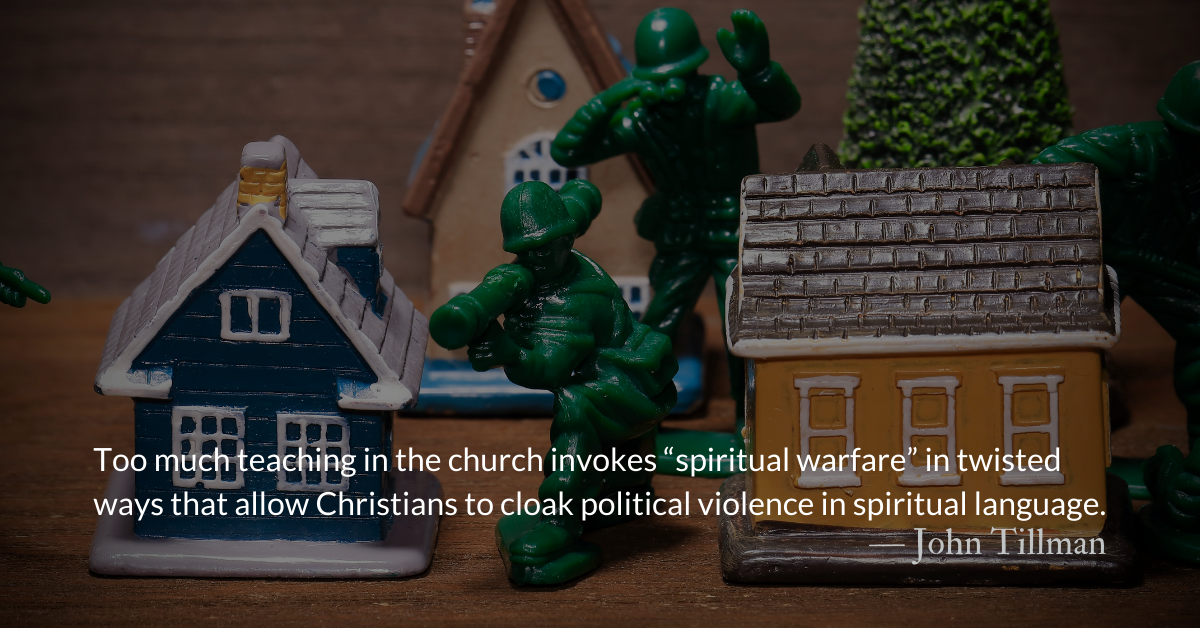Scripture Focus: 1 Chronicles 12.17-18
17 David went out to meet them and said to them, “If you have come to me in peace to help me, I am ready for you to join me. But if you have come to betray me to my enemies when my hands are free from violence, may the God of our ancestors see it and judge you.”
18 Then the Spirit came on Amasai, chief of the Thirty, and he said:
“We are yours, David!
We are with you, son of Jesse!
Success, success to you,
and success to those who help you,
for your God will help you.”
Reflection: Perishable and Imperishable Kingdoms
By John Tillman
Chronicles might seem like a book that looks back, longing for the “good old days,” but in reality it uses the past to think about the future.
David’s kingdom is idealized partly because one purpose of Chronicles is reminding people that a king “like David” is coming. Its readers had seen a Temple and a wall rebuilt, but not a kingdom. They wrestled with God’s promises of the past and past generations’ failures to fully realize those promises. Did God mean what he said about David’s kingdom having no end? Would God really bless the nations through them? When would this “Son of David” arise?
Chronicles gives a more thorough account of the slowly growing support for David after Saul’s reign. These men from many tribes transferred allegiance to a homeless, wandering king and a kingdom not fully realized. Many brought their entire families.
Amasai is the chief of David’s elite fighting force. They are known more for feats of battle than prophecy. Yet, Amasai was also a Levite and God’s Spirit came on him to proclaim that he, and those with him, were for David. By God’s Spirit he prophesied success and peace.
Many times in my life I have idealized “Mighty Men” like Amasai, Joab, and the other “sons of Zeruiah.” There are good things we can draw from these men and their many brave actions. However, too much teaching in the church about these men invokes “spiritual warfare” in twisted ways that allow Christians to cloak political violence in spiritual language.
These men and their lifestyles are not ideals for the Christian life. Many who served David, such as Joab, relied on violence, shrewdness, and political assassinations. They shed their own country members’ blood in service of their own power and to cover up David’s sins.
There are kingdoms of this world, like Saul’s, that are passing away. These earthly kings, tribes, and parties demand our attention, our fealty, our loyalty. They ask us to shed others’ blood by endorsing, normalizing, or embracing violence. We might fight…except that, as Jesus said, our kingdom is from another place (John 18.36) and our battles are not against flesh and blood. (Ephesians 6.12)
Let us not be goaded by kings, like Saul, who may be destroyed by their own violence. By God’s Spirit, may we forsake perishing, worldly kingdoms and prophesy success and peace for the imperishable kingdom of Jesus.
Divine Hours Prayer: A Reading
Then the angel showed me the river of life, rising from the throne of God and of the Lamb and flowing crystal-clear. Down the middle of the city street, on either bank of the river were the trees of life, which bear twelve crops of fruit in a year, one in each month, and the leaves of which are cure for the nations. The curse of destruction will be abolished. The throne of God and of the Lamb will be in the city; his servants will worship him, they will see him face to face, and his name will be written on their foreheads. And night will be abolished; they will not need lamplight or sunlight, because the Lord God will be shining on them. They will reign forever and ever. — Revelation 22.1-5
– From The Divine Hours: Prayers for Autumn and Wintertime by Phyllis Tickle.
Today’s Readings
1 Chronicles 11-12 (Listen – 11:59)
Hebrews 13 (Listen – 3:31)
Read more about The Superior Bravery of Tenderness
Bad spiritual takeaways from these “Mighty Men” passages “baptize” men’s sinful, violent tendencies as honorable spiritual qualities.
Read more about Not So Random Acts of Kindness
Jesus is a greater king than David, never failing to minister to those in need. He did more than honor the outcast, he cured their disease.







